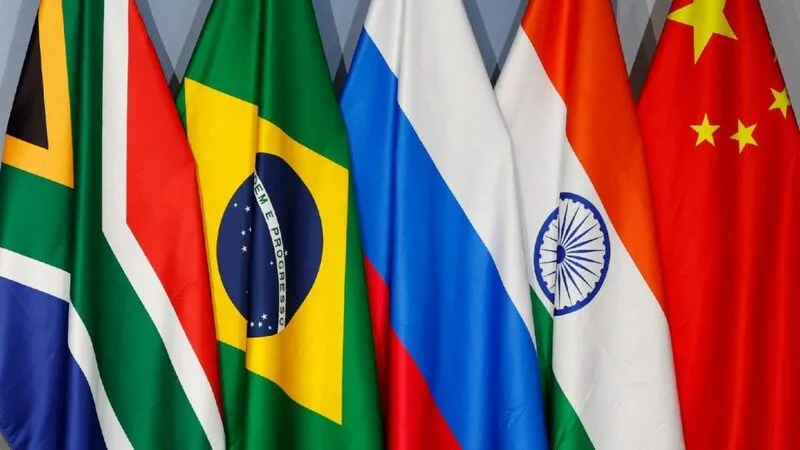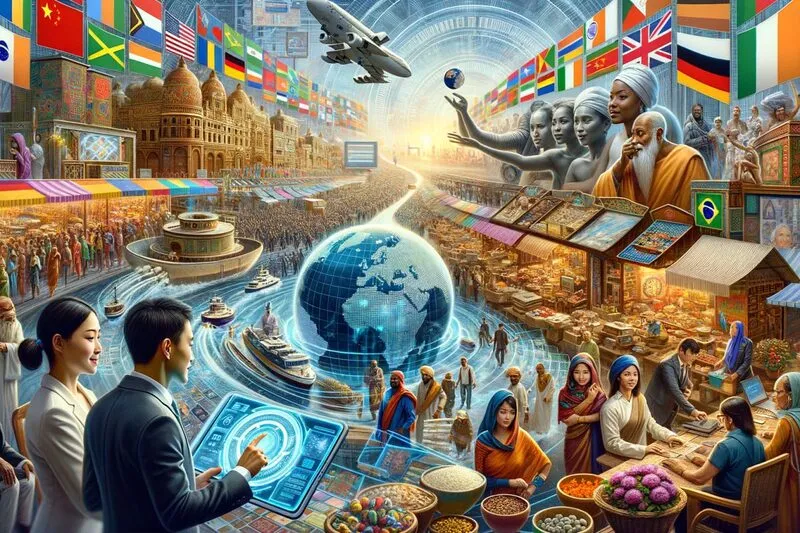The BRICS Summit 2025 topic is all about transforming global trade relationships, and right now, Brazil is hosting discussions that could completely reshape how international commerce works. Overall, this year’s BRICS Summit addresses critical areas including BRICS trade policy, Global South cooperation, AI governance though BRICS, and climate change initiatives that are signaling a major shift in how emerging economies approach partnerships.
Also Read: BRICS Summit Shaken as Xi Jinping & Putin Both Skip Key Brazil Meeting
BRICS Trade, AI Governance & Global South Cooperation Explained

Trade Standardization Drives Economic Integration
The key agenda of the BRICS Summit 2025 will concern the alignment of the trade standards of the member countries by different efforts. Mario Esper, the President of Brazilian Association of Technical Standards, made it clear that:
“Standardization plays an increasingly strategic role, serving as a tool for trade integration, innovation, and consumer protection, in alignment with the United Nations Sustainable Development Goals.”
Maria Cristina Rayol, Head of the Market Access Division at Brazil’s Ministry of Foreign Affairs, stated:
“If we do not converge on standards, our products will not enter BRICS Member States’ markets. If the challenges are the same, some basic principles remain—and the most fundamental is that countries need one another for their development. We will not reach our full potential unless we work together.”
The BRICS Summit 2025 main topic prominently features currency diversification efforts. Russian Foreign Minister Sergey Lavrov revealed progress in reducing US dollar dependence among member nations, transforming Global South cooperation mechanisms.
Sergey Lavrov stated:
“National currencies now represent more than 65% of trade exchanges within the BRICS, the dollar share has fallen to a third.”
This shift affects over 50 nations utilizing yuan, rupee, and ruble for oil and defense trade through BRICS partnerships. India’s partnership with Russia demonstrates effectiveness, with bilateral trade volume rising from $13 billion in 2021-2022 to $27 billion in 2022.
AI Governance Framework
The AI governance BRICS initiative represents a coordinated approach to managing AI development across member nations. BRICS wants to establish common standards and ethical frameworks that balance innovation with regulatory oversight, and this is becoming increasingly important as technology advances.
This cooperation addresses concerns about AI development being dominated by Western technology companies and also regulatory frameworks. BRICS nations are working to create alternative governance structures that reflect their values and development priorities.
Global South Cooperation Mechanisms
The Global South cooperation framework creates new pathways for economic partnership among developing nations. The BRICS Summit topic extends beyond BRICS members to include partnerships with other emerging economies.
Brazilian President Luiz Inacio Lula da Silva stated:
“Resorting to unilateralism undermines the international order. In the face of polarization and the threat of fragmentation, the consistent defense of multilateralism is the only path we must follow.”
Also Read: BRICS Inspires 15 Countries To Use Homegrown Payment System
Implications for Global Trade
Therefore, the main topic reflects broader changes in international trade relationships right now, and these changes are accelerating. The combination of standardization efforts, currency diversification, and cooperative frameworks is creating new alternatives to existing trade systems.
Russian President Vladimir Putin stated at the previous BRICS Summit:
“The dollar is being used as a weapon. We really see that this is so. I think that this is a big mistake by those who do this.”
These developments suggest that the summit’s outcomes will influence not just BRICS members but also the broader structure of international trade and governance. The emphasis on inclusive and sustainable governance represents a challenge to existing power structures while offering new opportunities for emerging economies.






